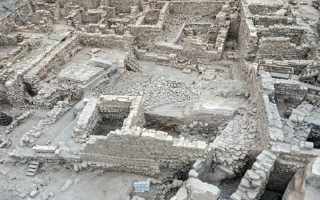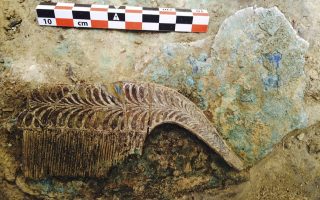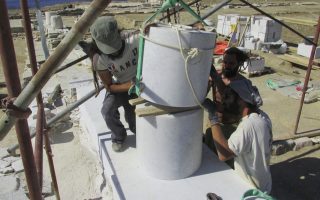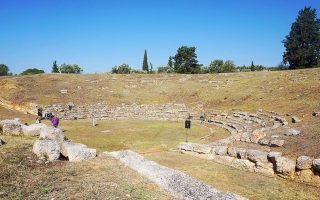Archaeological Society denies claims of Agamemnon throne discovery
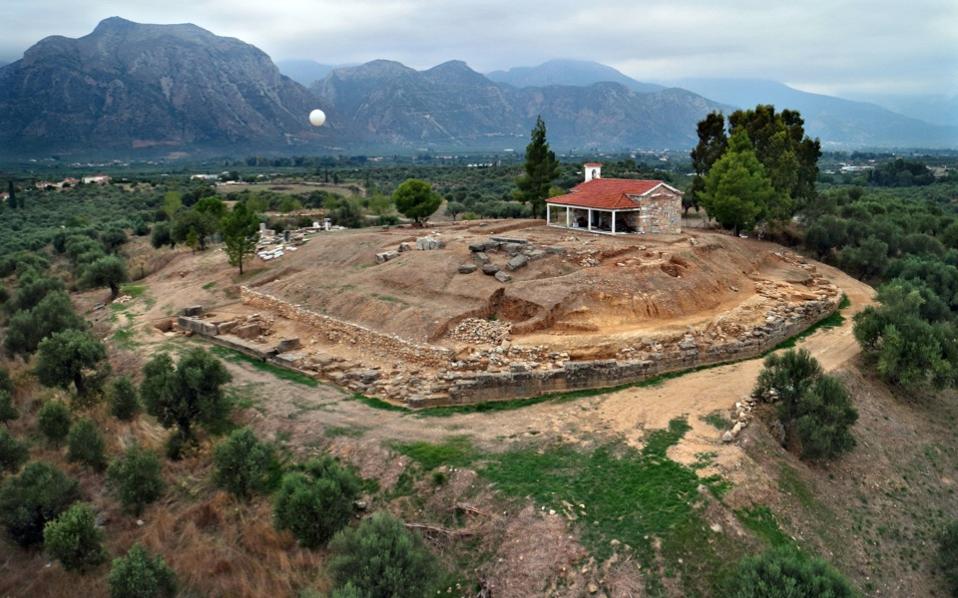
The Athens Archaeological Society has denied recent press reports that archaeologists have discovered part of the throne of Agamemnon, king of Mycenae.
In a letter to the Greek culture ministry, the society’s general secretary Vassilis Petrakos, who is also supervising excavations in Mycenae, in the north-eastern Peloponnese, said that claims by fellow archaeologist Christofilis Maggidis, who is field director of the dig, are unfounded.
He said that a team of experts had been sent to the site to examine the findings, a 50 kilo slab said to be part of the ancient king’s stone chair, and dating back to the last historical phase of the palace at Mycenae. The team concluded that there was no scientific evidence to back Maggidis's claim.
The shape of the finding, the experts said, suggests it was more likely part of a household or craft utensil.
Petrakos said the allegation marked an “unfortunate, if not deliberate, scientific diversion.”
The Mycenaean civilization flourished in the late Bronze Age, from the 15th to the 13th century BC. Its influence spread throughout the Peloponnese but also across the Aegean, Crete and the Cycladic islands.
Agamemnon was commander-in-chief of the Greeks in the Trojan War, as recounted by Homer. Although a mythical figure, Agamemnon may have been a reflection of an actual king.
